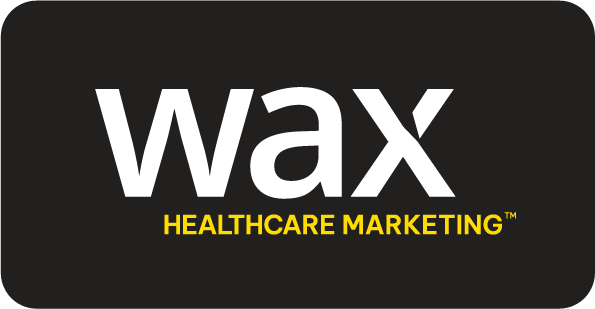Healthcare Brand Marketing
You drive change in healthcare every day. Your brand should match that momentum. WAX builds brands that amplify your mission, fuel your growth, and make your leadership undeniable. We do that through strategic positioning, compelling storytelling, and award-winning creative that drives recognition and results.
The Power of Purposeful Branding
Our team brings decades of healthcare expertise to transform organizations into market-defining forces. Whether you’re looking for a brand refresh or full rebrand, we can help with all the following:
- Brand Strategy & Positioning – We’ll uncover your unique market opportunity and develop a positioning that sets you apart. Through deep research and analysis, we’ll craft a compelling brand strategy that connects with your target audiences and drives business results.
- Brand Identity & Design – Our award-winning creative team will develop a distinctive visual system that brings your brand to life—from logo and typography to photography style and graphic elements. Every detail is crafted to create an instant emotional connection.
- Brand Experience – We create seamless digital experiences that engage audiences across every touchpoint. From your website to social media presence, we ensure your brand shows up consistently and memorably in the digital space.
- Brand Architecture & Guidelines – We’ll develop comprehensive guidelines that empower your team to consistently deliver on your brand promise. Clear standards and frameworks keep your brand strong as you grow.
- Brand Performance & Evolution – Your brand should evolve as your organization grows. We provide ongoing assessment and optimization to ensure your brand continues driving results and staying relevant in a changing marketplace.
Learn how we created the AHA’s most-improved healthcare brand in the nation for ChristianaCare. Want more? Six reasons internal branding is a must.
Let's Build Something Extraordinary
Your brand has a story waiting to be told. We’re here to help you tell it with clarity, creativity, and conviction. Get in touch with us today, and let us bring your vision to life.
